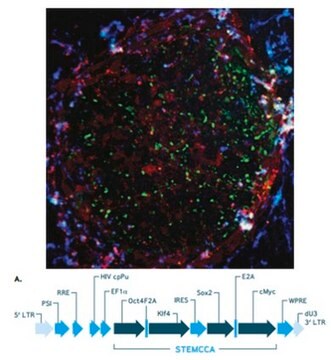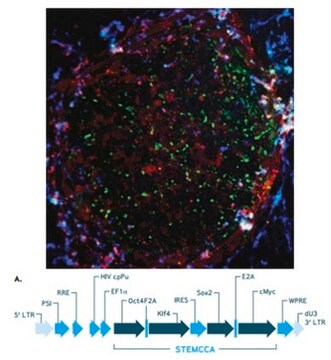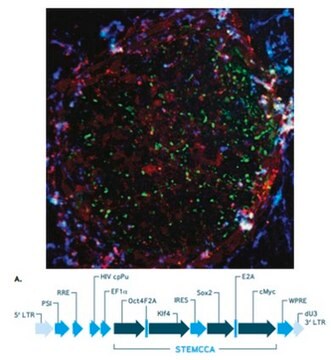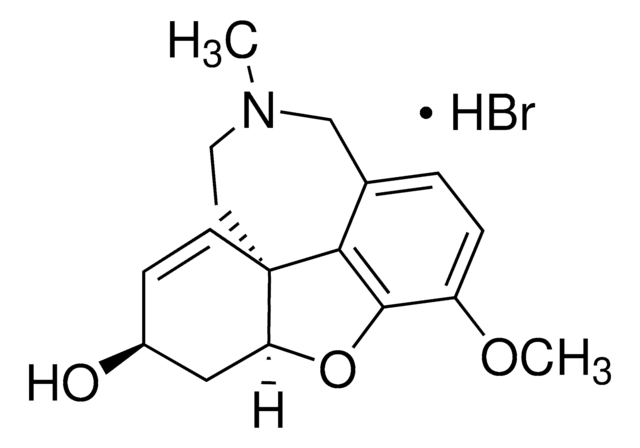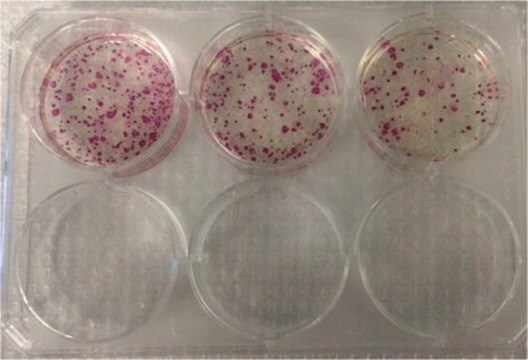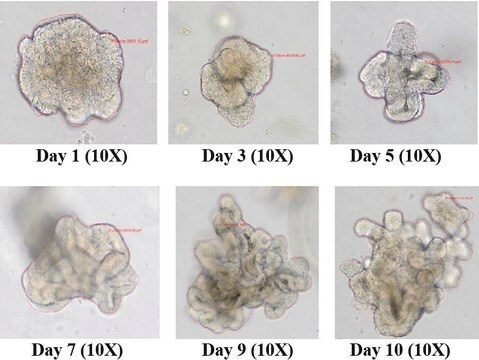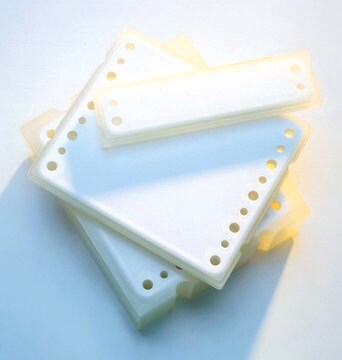SCR510
STEMCCA Constitutive Polycistronic (OKSM) Lentivirus Reprogramming Kit
The STEMCCA Constitutive Polycistronic Lentivirus Kit contains high titer polycistronic lentivirus & Polybrene transfection reagent that have been validated for the generation of mouse & human induced pluripotent stem cells.
Se connecterpour consulter vos tarifs contractuels et ceux de votre entreprise/organisme
About This Item
Code UNSPSC :
12352207
eCl@ss :
32161000
Nomenclature NACRES :
NA.81
Produits recommandés
Niveau de qualité
Fabricant/nom de marque
STEMCCA
Technique(s)
cell culture | stem cell: suitable
Entrée
sample type induced pluripotent stem cell(s)
sample type: mouse embryonic stem cell(s)
Conditions d'expédition
dry ice
Description générale
The STEMCCA Constitutive Polycistronic (OKSM) Lentivirus Kit contains high titer polycistronic (OKSM) lentivirus and Polybrene transfection reagent that have been validated for the generation of mouse and human induced pluripotent stem cells from mouse embryonic fibroblasts (MEFs) and human foreskin fibroblasts (HFFs), respectively. The STEMCCA vector is comprised of the transcription factors Oct-4, Klf4, SOX-2, and c-Myc (OKSM), separated by the self-cleaving 2A peptide and IRES sequences (Sommer CA, 2009). The use of a single polycistronic lentiviral vector significantly improves reprogramming efficiencies and reduces the number of viral integrations.
Important note: the STEMCCA lentivirus reprogramming kits are provided in two formats, dependent on whether you are working with a human or mouse system. Human reprogramming experiments require a higher multiplicity of infection (MOI) than mouse experiments. Therefore, the larger, three-vial kits are required for human reprogramming experiments. If you are reprogramming mouse embryo fibroblast cells, you have the option to use either the one- or three-vial kit, depending on how many wells you want to infect. Reprogramming other rodent somatic cells may require more than one vial of lentivirus to perform at optimal MOI.
Important note: the STEMCCA lentivirus reprogramming kits are provided in two formats, dependent on whether you are working with a human or mouse system. Human reprogramming experiments require a higher multiplicity of infection (MOI) than mouse experiments. Therefore, the larger, three-vial kits are required for human reprogramming experiments. If you are reprogramming mouse embryo fibroblast cells, you have the option to use either the one- or three-vial kit, depending on how many wells you want to infect. Reprogramming other rodent somatic cells may require more than one vial of lentivirus to perform at optimal MOI.
Application
Research Category
Stem Cell Research
Stem Cell Research
Composants
1. EF1α-STEMCCA (OKSM) Lentivirus: (Part number CS204279) One (1) vial containing 15 µL of high titer lentivirus.
2. Polybrene Transfection Reagent: (Part number TR-1003-50UL) One (1) vial containing 50 µL of 10 mg/mL stock.
2. Polybrene Transfection Reagent: (Part number TR-1003-50UL) One (1) vial containing 50 µL of 10 mg/mL stock.
Qualité
Tested to confirm the generation of iPS cells from p3 mouse embryonic fibroblasts and p6 human foreskin fibroblasts. Other cell types have not been tested and thus similar results can not be guaranteed.
Stockage et stabilité
Lentivirus is stable for at least 6 months when stored at -80°C. After first thaw, place immediately on ice and store in working aliquots to avoid further freeze thaws. Avoid freeze thaws as this will result in a decrease in the virus titer. Polybrene transfection reagent is stable for at least 1 year when stored at -20°C.
Code de la classe de stockage
12 - Non Combustible Liquids
Point d'éclair (°F)
Not applicable
Point d'éclair (°C)
Not applicable
Certificats d'analyse (COA)
Recherchez un Certificats d'analyse (COA) en saisissant le numéro de lot du produit. Les numéros de lot figurent sur l'étiquette du produit après les mots "Lot" ou "Batch".
Déjà en possession de ce produit ?
Retrouvez la documentation relative aux produits que vous avez récemment achetés dans la Bibliothèque de documents.
Notre équipe de scientifiques dispose d'une expérience dans tous les secteurs de la recherche, notamment en sciences de la vie, science des matériaux, synthèse chimique, chromatographie, analyse et dans de nombreux autres domaines..
Contacter notre Service technique